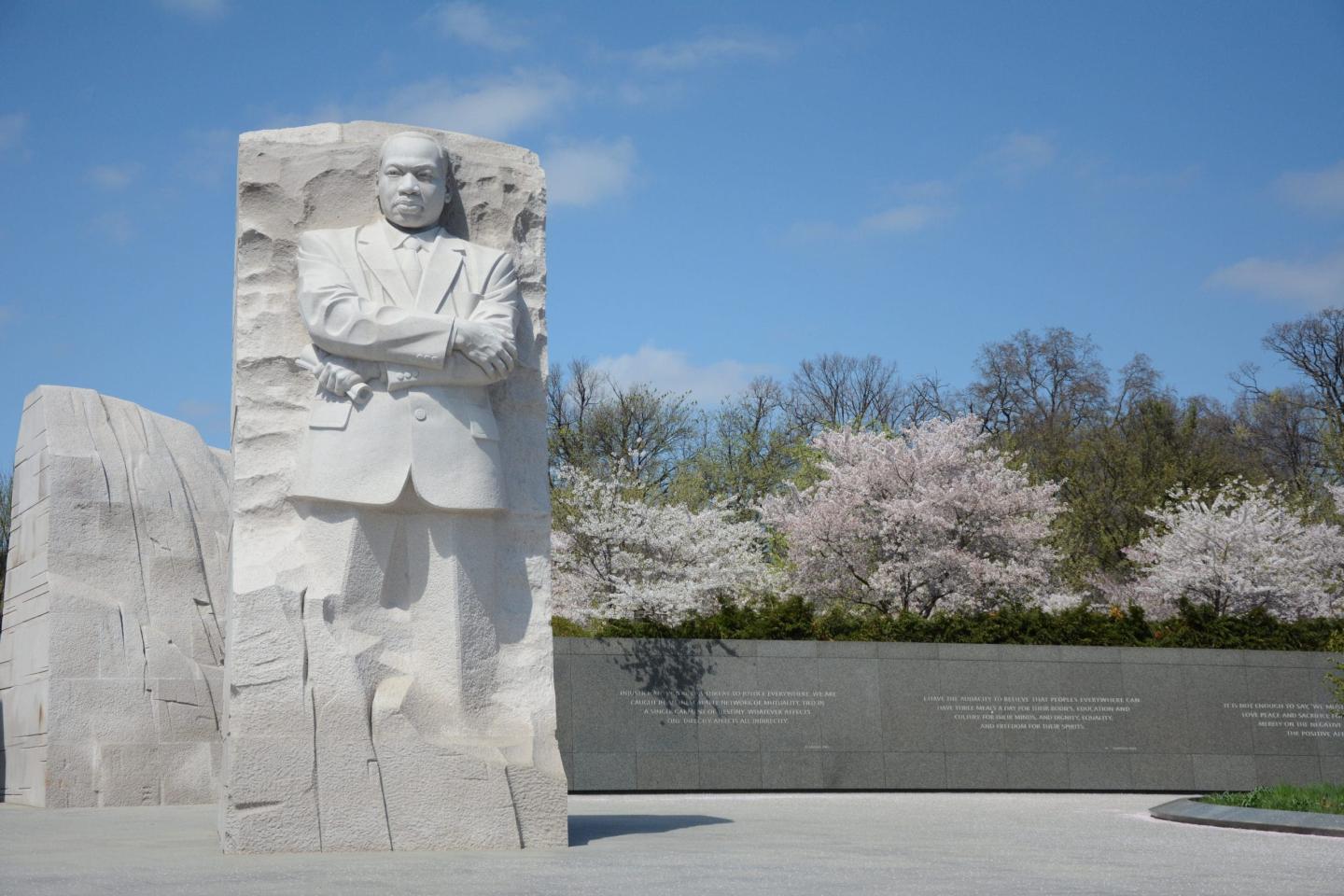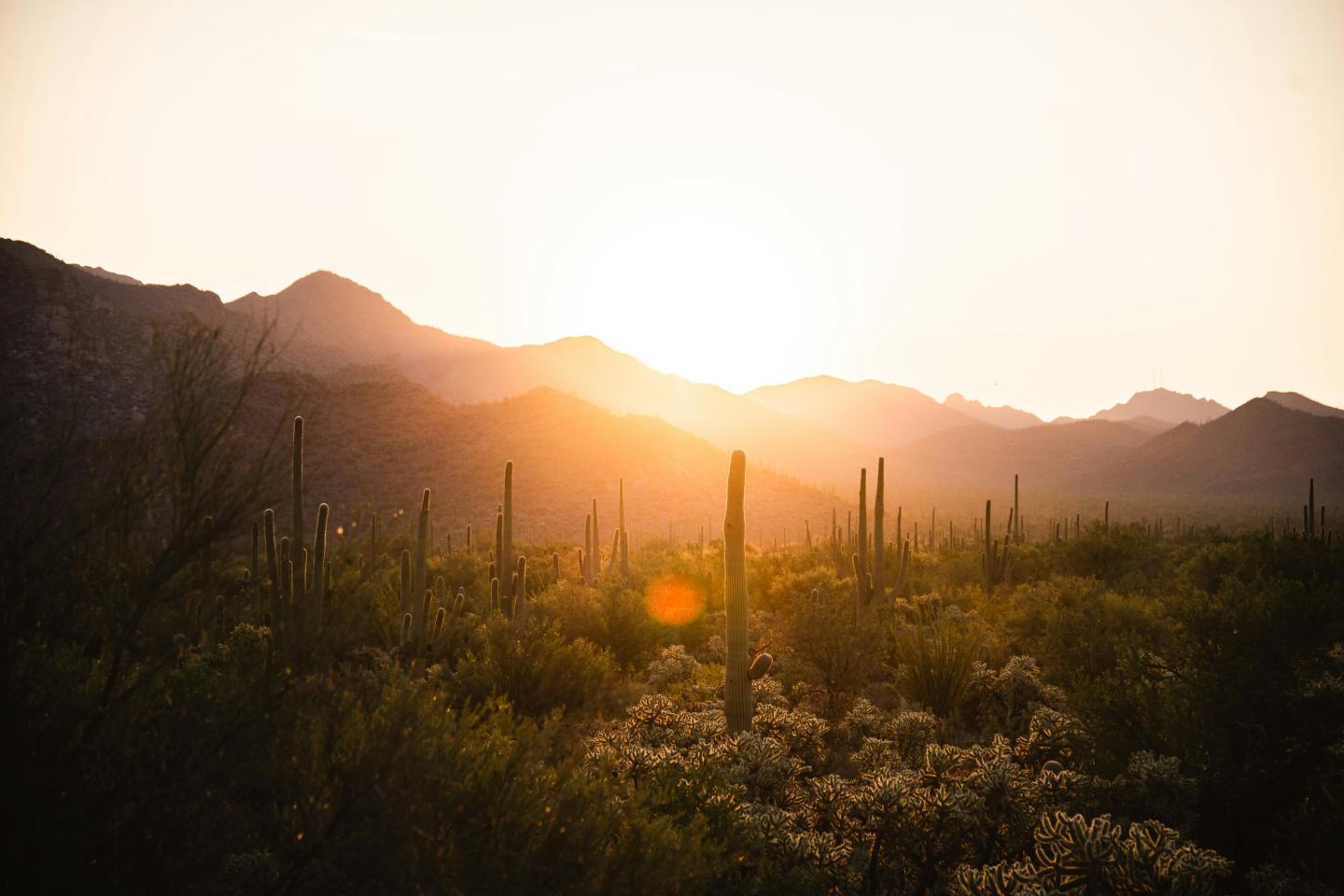
Celebrate Martin Luther King Jr. Day in a National Park

On the third Monday of January, we celebrate and honor the birth, life, and legacy of Dr. Martin Luther King Jr. Dr. King was born on January 15, 1929 in Atlanta, Georgia. He fought tirelessly for equality, liberty, and peace, leading a life of service and conviction that was tragically cut short on April 4, 1968. Fifteen years later, President Ronald Reagan signed the King Holiday Bill, designating the third Monday of every January as a day to recognize and respect this incredible leader.

A Federal Holiday and National Day of Service
In 1994, US Senator Harris Wolford and US Representative John Lewis, both veterans of the Civil Rights Movement, coauthored legislation to establish Martin Luther King Jr. Day as a National Day of Service—a day to uplift the community and be a part of something bigger. Coretta Scott King, Dr. King’s wife and fellow activist, said of the day: “The greatest birthday gift my husband could receive is if people of all racial and ethnic backgrounds celebrated the holiday by performing individual acts of kindness through service to others.” This day is a “day on,” rather than a “day off.” A day to come together, to break down barriers, to continue to fight for unity and the betterment of humanity.
Many national parks participate in this effort! You can check the National Park Service (NPS) website for volunteer opportunities, and learn more about how you can make a difference in protecting public lands and national parks. Additionally, the NPS has designated Martin Luther King Jr. Day as a day of free admission and parking—a “fee-free” day—at all national parks.

National Parks Preserve, Tell, and Support Stories of Liberty across the West
The national parks play an important role in preserving the stories integral to the Civil Rights Movement and in supporting work that builds on the legacy of Dr. King and many other activists. In 2017, Congress passed the African American Civil Rights Network Act. With this, the NPS gained authority to coordinate and facilitate activities to commemorate, and honor “the history of the African American Civil Rights movement; the significance of the civil rights movement as a crucial element in the evolution of the Civil Rights Act of 1964; and the relevance of the African American Civil Rights movement in fostering the spirit of social justice and national reconciliation.” This network encompasses many parks across the country.
You can visit these Western national parks and many others to learn about and become a part of these stories of equality and freedom.

California
Mojave National Preserve In 1910, the eastern Mojave Desert was opened to homesteading. A visionary group of African American entrepreneurs and clergy in Los Angeles traveled to Lanfair Valley, determined to establish agricultural and mining colonies in this desert settlement. These homesteads are the stories of communities who fought and innovated to survive and escape oppression and bigotry and to claim land and legacy. The outdoor areas of this park are open all year, with opportunities for camping, hiking, and more. Check with the NPS for the most up-to-date details for park visits.
Port Chicago Naval Magazine National Memorial This site tells an important chapter of the bigger story of racial desegregation of the American Military. It honors the lives lost to a major explosion in 1944, which led to the biggest mass mutiny trial in the history of the Navy as hundreds of African American servicemen protested the dangerous working conditions of the site. Read more about the Port Chicago 50 here. Reservations are required to visit this park. Check with the NPS for the most up-to-date details for park visits.

Kansas
Brown v. Board of Education National Historical Park On May 17, 1954, the United States Supreme Court decision in Brown v. Board of Education of Topeka ended legal segregation in schools. A major turning point in the fight for public school desegregation, this landmark decision would pave the way for the long battle ahead to create equity in education. Learn more about this landmark case and the long road to justice. This park is closed on Martin Luther King Jr. Day, but well worth the trip on another day. Check with the NPS for the most up-to-date details for park visits.

Texas
Lyndon B Johnson National Historical Park Located in Stonewall, Texas about 50 miles west of Austin, this park protects the birthplace, home, ranch, and final resting place of the 36th President of the United States, Lyndon B. Johnson. Johnson is well known for the civil rights legislation passed during his administration. A beautiful and unique national park experience, especially fun to visit in the winter months, with snow and ice a very rare event in the temperate Texas climate. Check with the NPS for the most up-to-date details for park visits.

We All Belong in a National Park
Martin Luther King Jr. Day is a day of service and celebration, a day of belonging and unity. As the first fee-free day of the year and the first federal holiday of the year after New Year’s Day, the weekend of Martin Luther King Jr. Day is a great time to connect with others and find yourself in a national park. In January, winter activities are in full swing at many sites. Play in the snow at Great Sand Dunes National Park and Preserve, Bandelier National Monument, Great Basin National Park, and more!
Or, if snow’s not your thing, head to the warmer climes of parks like Saguaro National Park, Pinnacles National Park, and Organ Pipe Cactus National Monument. Or go underground at Carlsbad Caverns National Park, where the cave is a balmy 56 degrees no matter what the weather brings. Whether you provide a small act of kindness in a park or volunteer at an NPS-sponsored event, you can find meaningful, fun, and reflective experiences in national parks on this day of recognition and service and throughout the year.
by Julie Thompson, WNPA






